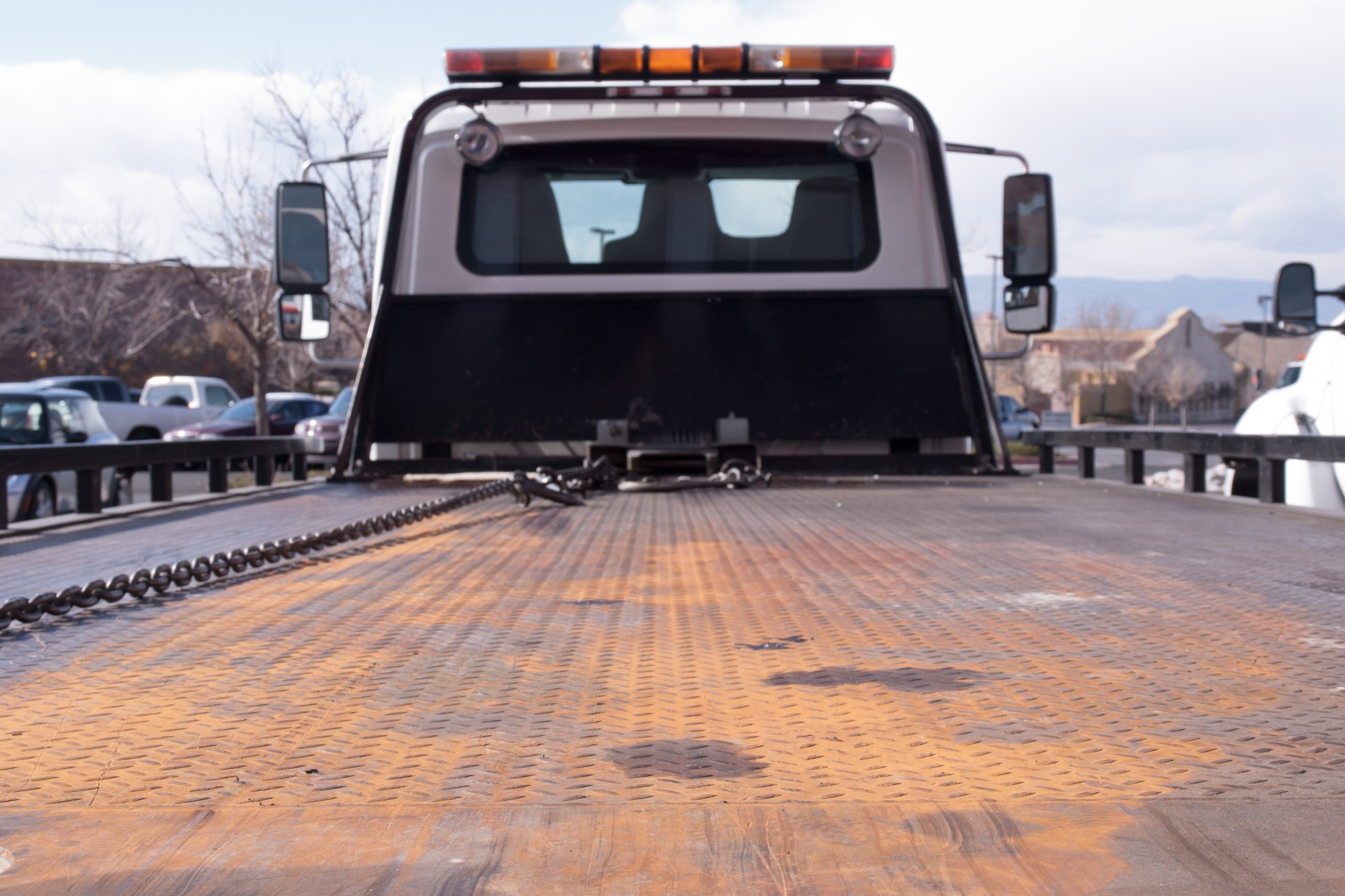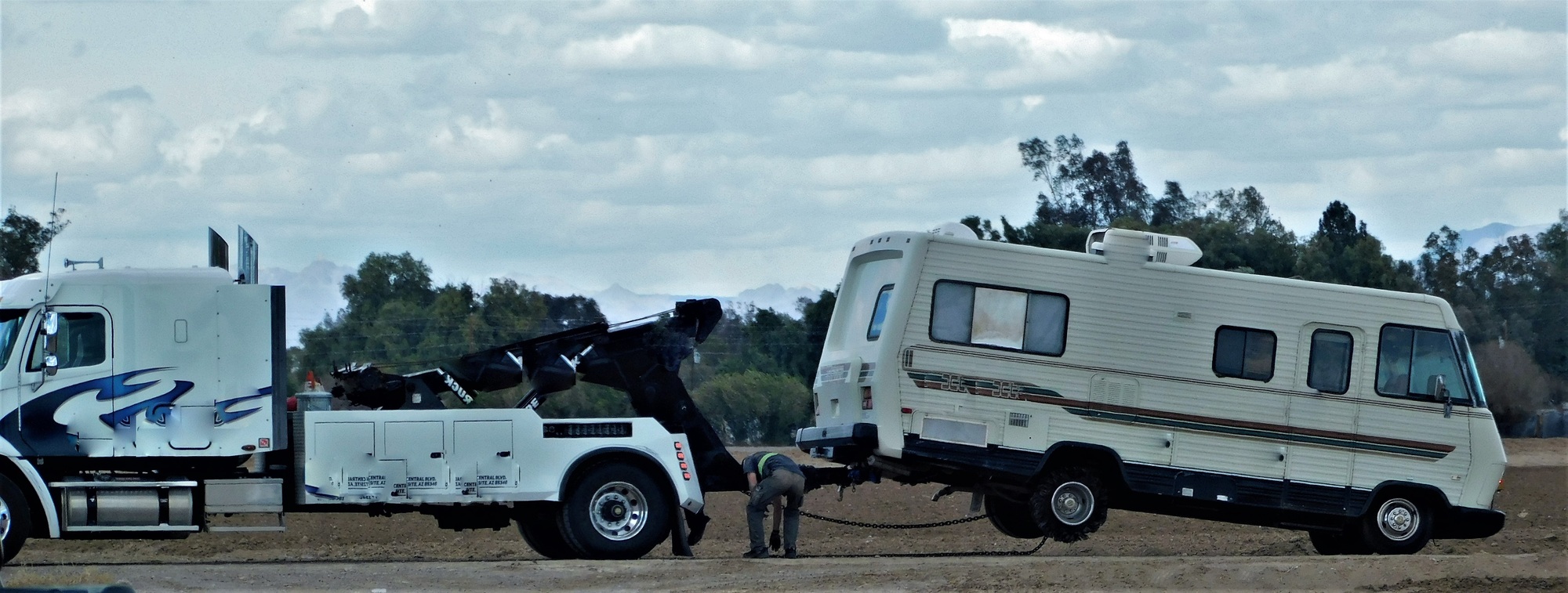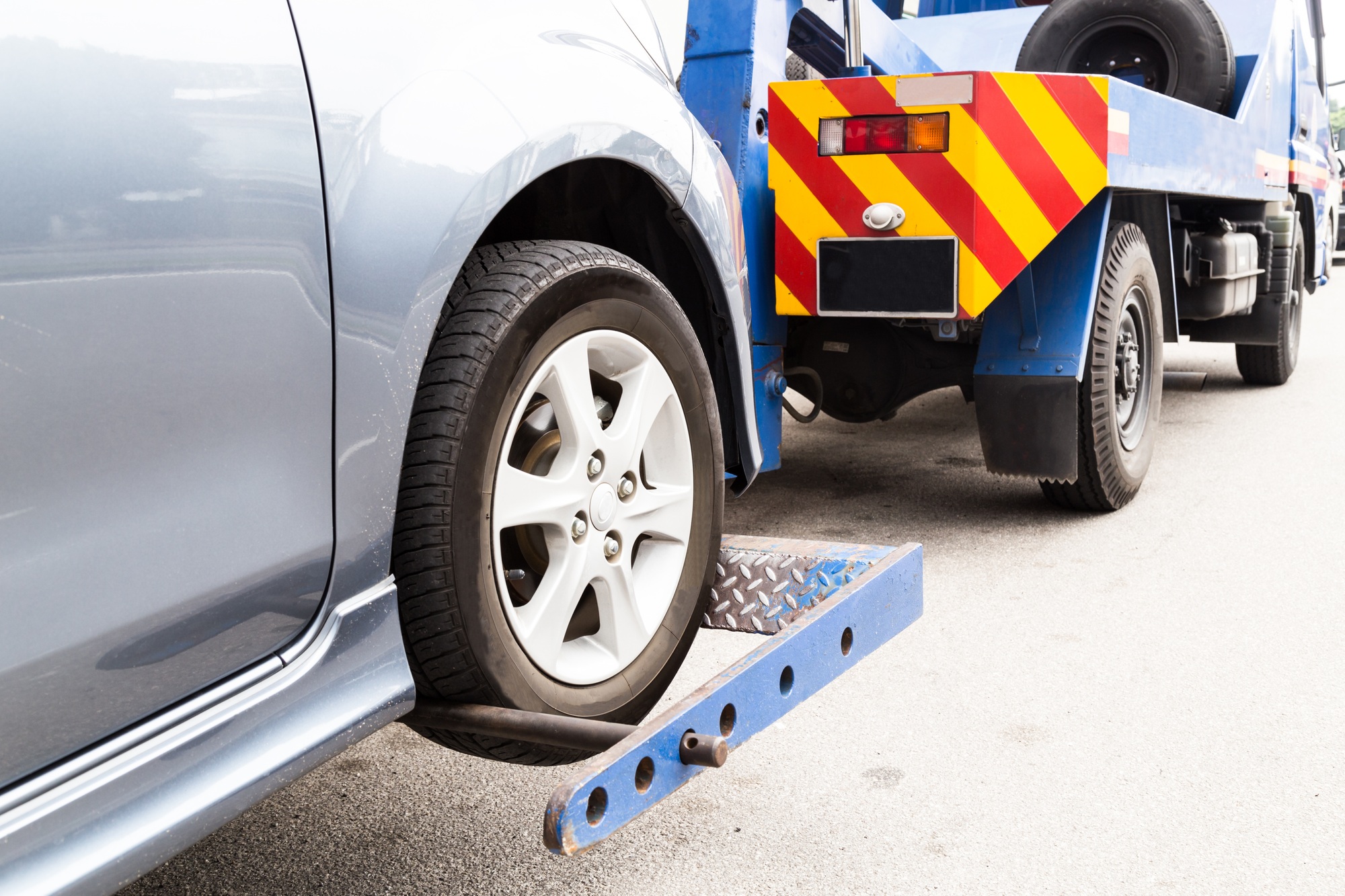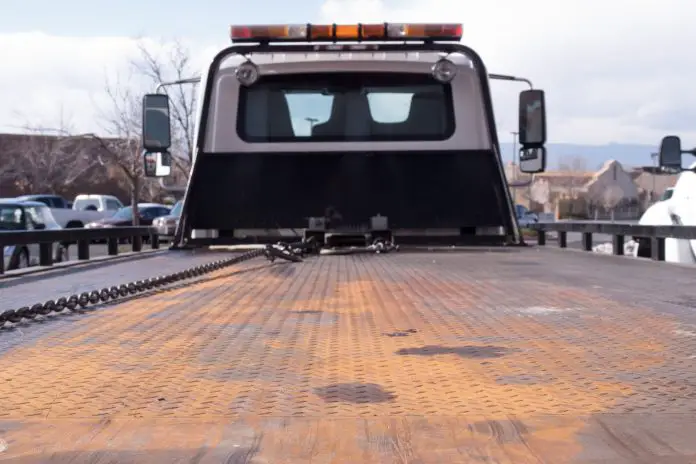Key Takeaways

- Importance of a Business Plan: A comprehensive business plan is vital for clarifying your vision, securing financing, and understanding your market in the towing industry.
- Key Components: Include an executive summary, market analysis, marketing strategy, operational plan, and financial projections in your business plan to establish a strong foundation.
- Target Audience Identification: Recognize your primary audiences, including vehicle owners, businesses, and municipalities, to tailor your services effectively.
- Operational Efficiency: Focus on selecting the right equipment, hiring qualified drivers, and developing a clear management structure to ensure smooth daily operations.
- Financial Planning: Understand startup costs (ranging from $75,000 to $200,000) and potential revenue streams, such as emergency towing and vehicle storage, to ensure sustainability and profitability.
- Marketing Strategy: Create a strong brand presence, optimize your online visibility, and utilize customer acquisition techniques like targeted ads and partnerships to grow your customer base.
Starting a tow truck business can be a rewarding venture, tapping into a crucial service that keeps roads safe and clear. Whether you’re looking to help stranded motorists or assist in vehicle recovery, having a solid business plan is essential to your success. It’s not just about having the right equipment; it’s about understanding your market, setting clear goals, and outlining your financial strategy.
Understanding the Tow Truck Business Plan

A well-structured tow truck business plan is essential for success in this small business venture. This document not only outlines your objectives but also serves as a roadmap for navigating the complexities of the towing industry.
Importance of a Business Plan
A business plan is crucial for several reasons. It helps you clarify your vision for the tow truck business, defines your target market, and sets measurable goals. Additionally, a solid business plan facilitates securing financing from investors or lenders, proving your commitment and understanding of the industry. Assessing competitors and identifying your unique selling proposition keeps you competitive in a crowded market.
Key Components of a Business Plan
A comprehensive business plan consists of several key components:
- Executive Summary: Highlights your business concept, goals, and the services you’ll offer.
- Market Analysis: Examines industry trends, target demographics, and competitor landscapes.
- Marketing Strategy: Details how you plan to attract and retain customers through branding, advertising, and promotions.
- Operational Plan: Outlines everyday operations, including staffing, equipment needs, and location.
- Financial Projections: Details expected revenue, expenses, and cash flow for at least three years.
Including these elements ensures clarity and sets a strong foundation for your tow truck business.
Market Analysis

A thorough market analysis forms a critical part of your tow truck business plan. This section delves into key factors driving the industry, identifying your target audience, and examining the competitive landscape.
Target Audience
Understanding your target audience is essential for effective marketing and service delivery. Your primary audience includes:
- Vehicle Owners: Individuals needing towing services due to breakdowns or accidents. The rise in vehicle ownership directly correlates to increased demand.
- Businesses: Companies requiring towing for fleet vehicles or to manage improperly parked vehicles. The e-commerce and logistics sectors particularly present extensive opportunities.
- Municipalities: Local governments seeking reliable tow truck services for traffic management, particularly in urban areas. Urbanization increases the potential for contracts with municipalities.
Competitive Landscape
Analyzing the competitive landscape ensures that you position your small business effectively. Key elements to consider include:
- Market Players: Identify existing tow truck businesses in your area. Evaluate their service offerings, pricing strategies, and customer service quality.
- Service Differentiation: Focus on unique selling propositions, such as faster response times, specialized equipment, or eco-friendly practices to distinguish your business.
- Partnership Opportunities: Explore collaborations with auto repair shops, car dealerships, and insurance companies. These partnerships can facilitate referrals and enhance your service reach.
By scrutinizing these components, you can successfully tailor your business strategies to meet market demands and stay competitive in the tow truck industry.
Operational Plan

The operational plan outlines the key components necessary to run your tow truck business efficiently. Focus on location, equipment, staffing, and management to establish a solid foundation.
Equipment and Vehicle Requirements
Select appropriate tow trucks based on the services you provide. Invest in flatbeds, wheel-lift trucks, or integrated tow trucks depending on the types of vehicles you’ll tow, as each serves distinct roles. Understand your area’s regulatory requirements for towing equipment and ensure all vehicles meet safety standards. Maintain your fleet regularly to maximize performance and minimize downtime, ensuring your response times stay competitive.
Staffing and Management
Hire qualified drivers who possess commercial driver’s licenses (CDLs) and have experience in towing operations. Ensure your team is trained in safety protocols, excellent customer service, and effective communication skills. Establish a management structure that clearly defines roles, from dispatchers to field personnel, to streamline operations. Implement ongoing training to keep staff updated on industry developments and best practices, contributing to your business’s reputation for reliability and professionalism.
Financial Projections

Understanding financial projections is vital when you start a tow truck business. It encompasses both startup costs and potential revenue streams, providing insights into your business’s financial sustainability.
Startup Costs
Starting a tow truck business requires careful budgeting for various expenses. Total startup costs typically range from $75,000 to $200,000. This amount varies based on your business scale and location. Core costs include:
- Towing Vehicles: Investment in reliable tow trucks is essential. Prices can fluctuate based on new or used models, ranging from $20,000 to over $100,000 each.
- Licenses and Permits: Obtaining the necessary permits and licenses for towing operations can cost between $1,000 and $10,000.
- Insurance: Comprehensive insurance coverage protects your business, with annual premiums often exceeding $10,000.
- Office Equipment: Basic needs for an operational office can amount to $2,000 or more, including computers and communication tools.
- Technology: Investments in dispatch systems, GPS devices, and other technology tools typically range from $5,000 to $15,000.
- Marketing: Allocating funds for advertising and promotional materials is crucial, with initial costs potentially reaching $3,000.
- Staff Hiring and Training: Onboarding qualified staff, including drivers, involves hiring expenses that can total $5,000 or more.
Revenue Streams
A successful tow truck business can achieve profit margins between 10% and 20% after covering expenses. Revenue primarily originates from various services, such as:
- Emergency Towing: Most tow truck businesses rely heavily on emergency towing services, which constitute a significant percentage of total revenue.
- Fleet Management: Partnering with businesses for fleet towing services can create steady income and strengthen client relationships.
- Vehicle Storage Fees: Charging for vehicle storage can diversify income, especially for impounded vehicles.
- Roadside Assistance Services: Offering additional services like fuel delivery or tire changes can enhance customer satisfaction and boost revenue.
Your business plan should outline these financial projections, helping you gauge profitability and ensuring a clear strategy for sustainable growth.
Marketing Strategy

A strong marketing strategy is essential for your tow truck business’s success. Focusing on effective branding, promotion, and customer acquisition techniques ensures visibility and growth.
Branding and Promotion
Developing a unique brand identity strengthens your small business’s presence. Create a logo, design business cards, and establish consistent messaging across all platforms. Your website should remain user-friendly, while showcasing services and an appealing design. Utilize social media platforms to engage with customers and share testimonials, reinforcing brand credibility.
Optimization of your website through search engine optimization (SEO) techniques enhances online visibility. Implement local keywords such as “towing near me” and “tow truck in [city]” in your content. A content marketing strategy including blogs or videos can highlight your expertise, attracting more visitors. Consider promotions or discounts during the initial launch phase to entice new customers.
Customer Acquisition Techniques
Successful customer acquisition techniques drive your small business forward. Develop a user-friendly mobile app to allow customers to book services quickly and track their tow truck in real time. This approach increases convenience, leading to higher customer satisfaction.
Utilize Google Ads to target local customers with clear purchasing intent. Focus on ad copies that contain specific phrases, such as “affordable towing services” or “emergency tow truck.” Leverage Facebook and Instagram Ads to capture essential lead information, including phone numbers and locations. Utilize Facebook’s Lead Ads to simplify the process and boost response rates. Building partnerships with local businesses can further enhance your customer base, creating mutually beneficial referral systems.
Conclusion

Starting a tow truck business can be a fulfilling venture with the right approach. By crafting a comprehensive business plan you set yourself up for success in a competitive market. This plan not only clarifies your vision but also helps you identify your target audience and establish a solid financial foundation.
Focusing on operational efficiency and a strong marketing strategy will enhance your business’s reputation and customer reach. Remember to continuously analyze market trends and adjust your strategies accordingly. With dedication and the right planning you can build a thriving tow truck business that meets the needs of your community while ensuring your long-term success.
Frequently Asked Questions

What are the key elements to start a tow truck business?
To start a tow truck business, you need a solid business plan, the right equipment, and a clear understanding of your target market. It’s essential to set measurable goals and define a financial strategy for success. By addressing these elements, you can create a strong foundation for your venture.
Why is a business plan important for a tow truck business?
A business plan serves as a roadmap for your towing business, clarifying your vision, target market, and operational strategies. It’s crucial for securing financing and staying competitive, as it outlines key components like market analysis, marketing strategy, and financial projections.
Who are the primary customers for towing services?
The primary customers for towing services include vehicle owners who need towing, businesses requiring fleet management, and municipalities needing services for traffic management. Understanding these segments helps tailor your offerings and improve market positioning.
What operational aspects should I consider when starting a tow truck business?
Key operational aspects include selecting the right location, choosing appropriate equipment, hiring qualified staff, and establishing a management structure. Regular fleet maintenance and adherence to safety regulations are also crucial for efficient operations and enhancing your business’s reputation.
What are the typical startup costs for a tow truck business?
Startup costs for a tow truck business typically range from $75,000 to $200,000. Key expenses include purchasing towing vehicles, securing licenses and permits, insurance, office equipment, and marketing. Understanding these costs is vital for developing a comprehensive financial strategy.
How can I ensure profitability in my tow truck business?
To achieve profitability, focus on understanding your revenue streams, which include emergency towing, fleet management, and roadside assistance. Aim for profit margins between 10% and 20%, and ensure your financial projections are included in your business plan to monitor growth.
What marketing strategies should I implement for my tow truck business?
Developing a strong marketing strategy is essential. Key tactics include creating a unique brand identity, optimizing your website for SEO, engaging on social media, and using targeted ads for customer acquisition. Building partnerships with local businesses can also help expand your customer base.
Image Via Envato: ThamKC, photovs, sedrik2007, AZ-BLT, duallogic, bilanol, traimakivan, arina-habich



